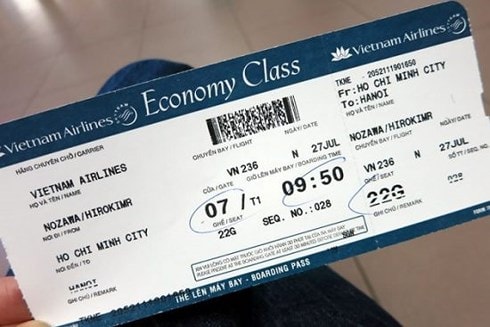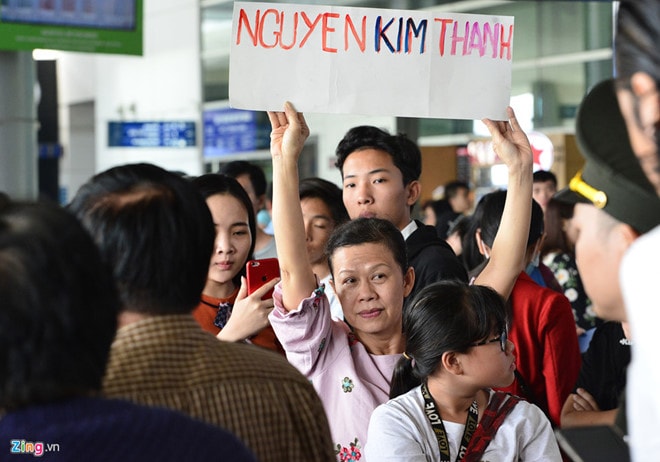Lost billions because of buying fake plane tickets to return home for Lunar New Year 2019
Billions of dong spent by Vietnamese workers in Japan to buy tickets to return home for the Lunar New Year may have been appropriated by a subject in Vietnam through the sale of cheap airline tickets.
Vietnam Airlines said that in early October, Vietnamese workers in Japan discovered that billions of dong they spent on tickets to return home for the 2019 Lunar New Year holiday may have been appropriated by a subject in Vietnam through the form of selling cheap airline tickets.
The airline representative said they received this information from a representative of the Japanese police investigation, the unit that is handling the complaint of Vietnamese workers here. This person added that this phenomenon has been happening in recent years. However, they do not know the exact number of passengers who were scammed during Tet this year, because the Japanese police have not provided specific information.
|
| Crowded scene welcoming relatives home for Tet 2018. Illustration photo. |
According to the complaint of dozens of these workers, the scammer introduced himself as a lecturer at a prestigious university in Hanoi, with many connections so he could buy airline tickets at much cheaper prices than other ticket agents.
With a commitment to pay commissions of 7.5 - 10%, this subject has created a large customer network in Japan, some workers even collected ticket purchase lists with a total value of up to billions of VND.
According to the airline's policy, customers who book tickets will have their seats held for 24 hours along with the booking code, after which they must issue tickets - that is, transfer money to the airline to get the plane tickets. Taking advantage of this policy, scammers will take the booking code and send it to customers as collateral.
Many customers mistakenly thought they had a ticket when holding the booking code in their hands, and quickly paid 100% of the money to the subject. In fact, the scammers, after receiving the money from the customers, did not pay the airline and let the booking code self-destruct after it expired.
Or more sophisticatedly, many subjects still make payments and issue tickets to customers, but then refund the tickets (cancel the tickets, do not go anymore) to receive the full amount of the ticket purchase and only have to pay a small fee for the refund procedure.
Although the above tricks are common methods, in reality, scammers will vary and change their approach depending on the customer's level of understanding.
 |
| Customers need to get a receipt or invoice when purchasing a ticket. This is a document that customers use to protect their rights. |
It is noted that with customers who are less tech-savvy, they can ask customers to pay for airline tickets using money transfer software, give misleading instructions, and when customers encounter difficulties, they will offer to transfer money directly to them to "help with payment".
A representative of Vietnam Airlines said that because it is a civil transaction between individuals, the airline cannot help handle the incident. The airline can only warn and advise customers.
According to the airlines' recommendations, to avoid buying fake tickets, passengers should buy tickets using one of the following three methods:
- Buy directly on the airline's official website
- Buy at domestic and international airline ticket offices
- Buy at official dealers of the Company in and out of the country.
In addition, customers need to get a receipt and invoice when buying tickets. This is a document that customers use to protect their rights./.


